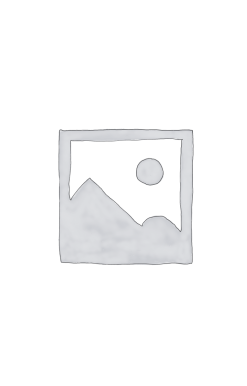French Vocabulary Course (Learn French with the Michel Thomas Method)
50.00 JOD
Please allow 2 – 5 weeks for delivery of this item
Only logged in customers who have purchased this product may leave a review.
Description
Additional information
| Weight | 0.153 kg |
|---|---|
| Dimensions | 1.1 × 15.5 × 23.5 cm |
| by | |
| Format | CD-Audio |
| Language | |
| Publisher | |
| Year Published | 2019-1-24 |
| Imprint | |
| Publication City/Country | London, United Kingdom |
| ISBN 10 | 1473692733 |
| About The Author | Hélène Lewis studied English, French and Russian in Paris and Edinburgh. She was Head of the International Programmes Academic Group at Bournemouth University where she taught French, communication skills and international personal development. She worked for many years in lexicography and has also co-authored a number of textbooks. Her main interests are in teaching foreign languages to non-specialists, developing materials for independent study and e-learning. |
| Other text | The original no-pens, no-books, no-memorizing course that gets you speaking and understanding French in hours, not years. The revolutionary Michel Thomas Method has helped over 5 million people learn a language. |
| Table Of Content | : Introduction: How this course came about, what it does and does not include, how it works, and how it is both faithful to and expands upon the Michel Thomas Language Courses: 1 WHAT YOU ALREADY KNOW – COGNATES: Introduction: Transformation of adjectives ending in "-ible": Transformation of adjectives ending in "-able": Formation of adjectives ending in "-able" from "-er" verbs: Transformation of adjectives beginning with "un-" and "in-": Formation of adjectives ending in "-able" from "-oir", "-re" and "-ir" verbs: Transformation of adjectives and nouns ending in "-ant": Transformation of adjectives and nouns ending in "-ent": Transformation of nouns ending in "-tion": Transformation of nouns ending in "-sion": Transformation of nouns ending in "-ance" and "-ence": Transformation of nouns ending in "-er" and "-ist": Further transformation of nouns ending in "-ance": Transformation of adverbs in "-ly": Transformation of adjectives and nouns ending in "-ary" and "-ory": Transformation of adjectives ending in "-ive": Transformation of adjectives ending in "-ous": Transformation of adjectives ending in "-ic" and "-ical" and nouns ending in "-ic" and "-ics": Transformation of nouns ending in "-ure": Transformation of nouns ending in "-tude": Transformation of nouns ending in "-ity": Further transformation of some nouns ending in "-y": Transformation of nouns ending in "-in" and "-ine": Transformation of adjectives ending in "-ide": Transformation of nouns ending in "-ism" and "-ist": Transformation of adjectives ending in "-al": Conclusion.: 2 BEING ON THE RIGHT TRACK – VERBS: Introduction: Verbs in «-er7; – present, imperfect and conditional: Verbs in «-er7; – imperfect and perfect with "être" and "avoir": "Etre en train de", "être sur le point de", "venir de": Verbs in « -ir 7; of the « ouvrir 7;, « sortir 7; and « venir 7; types: Verbs in « -ir 7; of the « finir 7;; "en" + present participle: Verbs in "-re": Verbs in "-uire" and "-ire": Everyday verbs and semi-idiomatic usages: "prendre", "dire": Further everyday verbs: "boire", "croire", "faire", « savoir 7; and « connaître 7;: Reflexive verbs.: 3 EVERYDAY EXPRESSIONS: Common constructions : verbs with "à", "de" and "sur": "Vouloir dire": Expressions of time: "depuis", "pendant", "il y a", "en", "dans", "avant" and "après": Talking about days of the week, months and seasons: Telling the time: Expressions of place: "-ci" and "-là", "loin" and "près", "à gauche" and "à droite 7;, « devant 7; and « derrière 7;, « dessus 7; and « dessous 7;: Expressions of quantity : « quelque 7;, « du 7;, « de la 7;, the pronoun « en 7;, « assez 7;, « la plupart de 7;: Talking about numbers: « Il faut 7;: The pronoun « y 7;: « Avoir 7; and semi-idiomatic expressions: « Etre 7; and semi-idiomatic expressions: Using negatives: "ne … pas", "ne … plus", "ne … rien", "ne … personne", "non … plus", "ni … ni", "ne … que".: Adjective changing their meaning before the noun : "ancien", "certain", "cher", "propre": Making comparisons: Adding emphasis: "voici" and "voilà", "c'est … qui", "ce qui", "ce que": Using "on": Talking about people: using "gens" and "personnes": Talking about opposites: Giving approximations |





Reviews
There are no reviews yet.